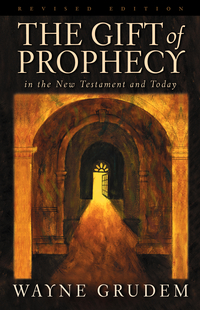The Duration of Prophecy: How Long Will Prophecy Be Used in the Church? (Part 3) by Wayne A. Grudem
Part 3 and conclusion of Professor Grudem’s exegetical study of 1 Corinthians 13. The Duration of Prophecy: How Long Will Prophecy Be Used in the Church?

“The Duration of Prophecy” is Chapter 12 from The Gift of Prophecy in the New Testament and Today by Wayne A. Grudem.
The Relationship between the Gift of Prophecy and Scripture
In addition to the interpretation of 1 Corinthians 13:8-13, there is one other area of concern to the question of whether prophecy should continue being used in the church today. That area is the relationship between New Testament congregational prophecy and Scripture.
Does the continuation of prophecy challenge the sufficiency of Scripture or the closed canon?
Those who take a cessationist view of prophecy argue that once the last New Testament book was written (probably the book of Revelation around a.d. 90), then there were to be no more “words of God” spoken or written in the church. Scripture was the complete and sufficient source of God’s words for his people, and to add any more words from continuing prophetic utterances would be, in effect, either to add to Scripture or to compete with Scripture. In both cases, the sufficiency of Scripture itself would be challenged, and, in practice, its unique authority in our lives.
If New Testament congregational prophecy was like Old Testament prophecy and New Testament apostolic words in its authority, then this cessationist objection would indeed be true. If New Testament prophets today, for example, spoke words that we knew were the very words of God, then these words would be equal to Scripture in authority, and we would be obligated to write them down and add them to our Bibles whenever we heard them. But if we are convinced that God stopped causing Scripture to be written when the book of Revelation was completed, then we have to say that this kind of speech, uttering the very words of God, cannot happen today. And any claims to have new Scripture, new words of God, must be rejected as false.
This question is very important, because the claim that New Testament prophecy had authority equal to Scripture is the basis of perhaps every cessationist argument written today. Yet it must be noted that charismatics themselves do not seem to view prophecy that way. George Mallone writes, “To my knowledge no noncessationist in the mainstream of Christianity claims that revelation today is equal with Scripture.”14 Perhaps it would be good for those arguing against continuing prophecy today to give a more sympathetic hearing to the most responsible charismatic spokesmen, simply for the purpose of being able to respond to something that charismatics actually believe (even if not always expressed in theologically precise form) instead of responding to something that cessationists say that charismatics believe or say that charismatics should believe.
Category: Fall 2001, Pneuma Review, Spirit


